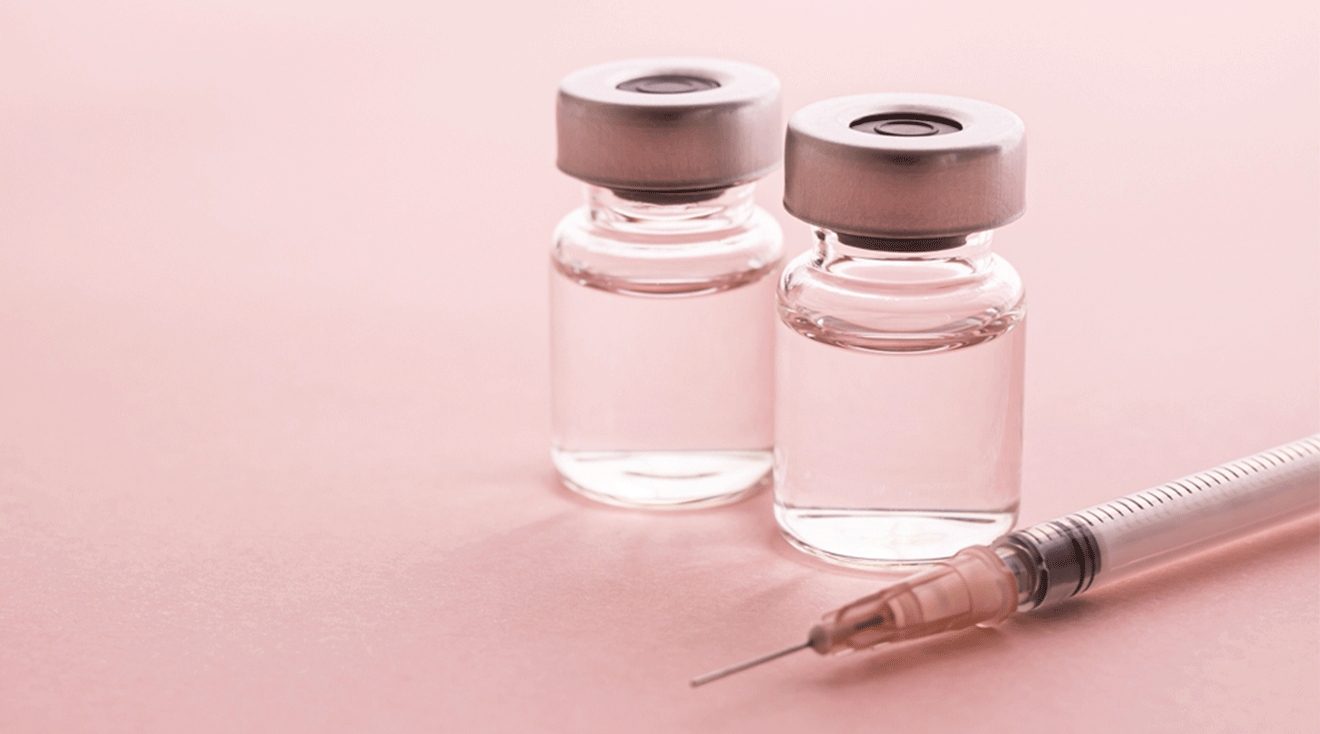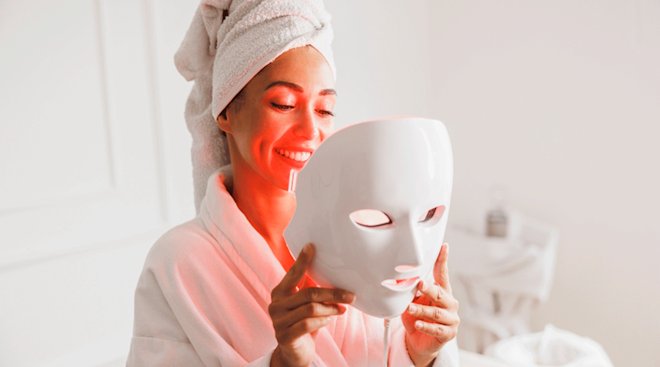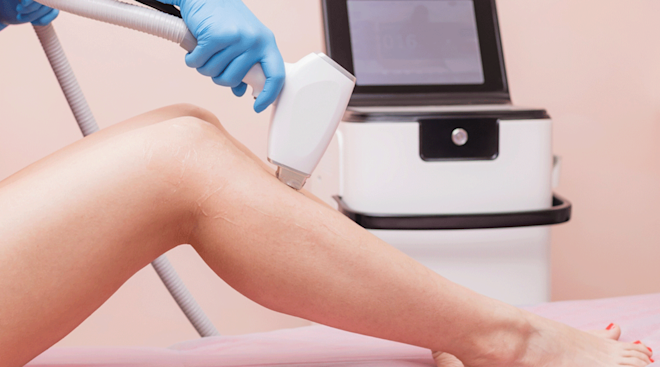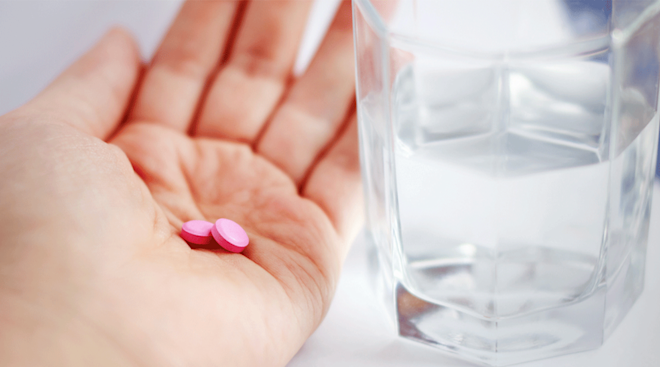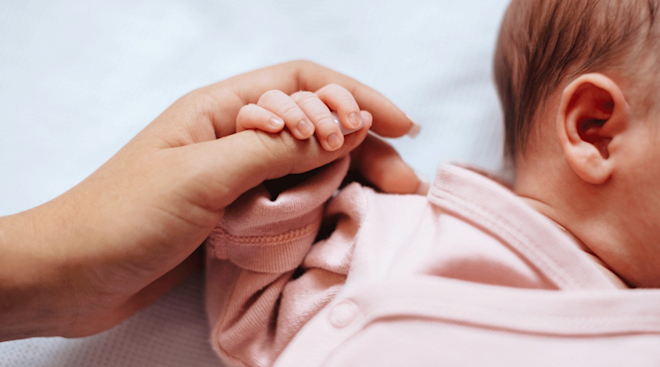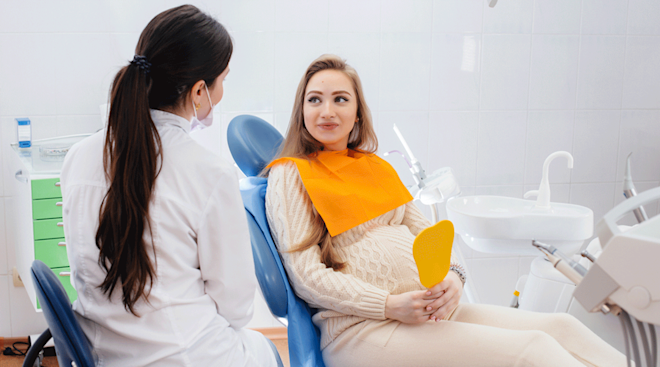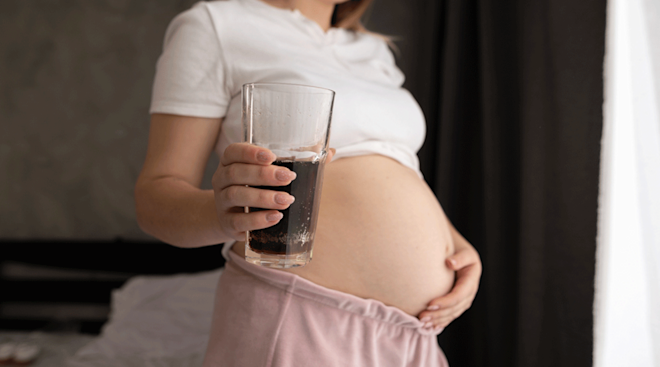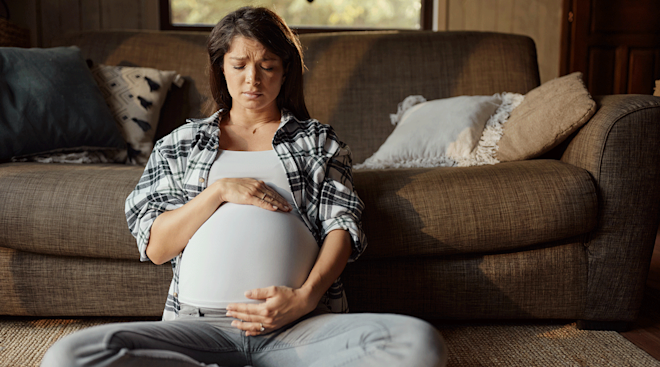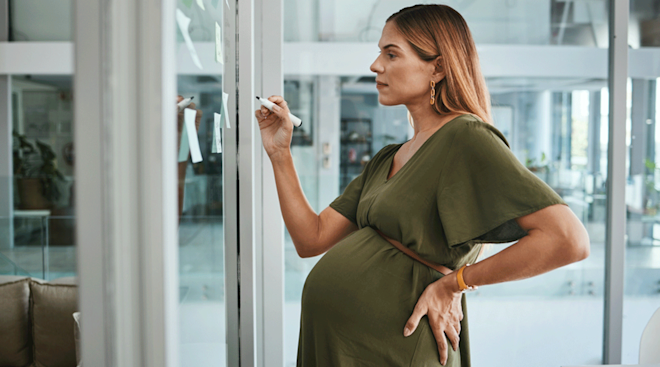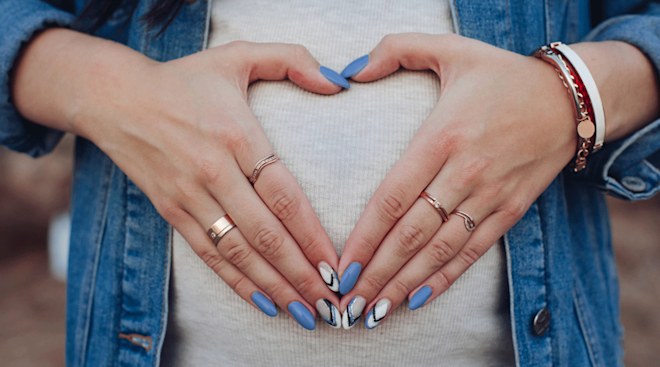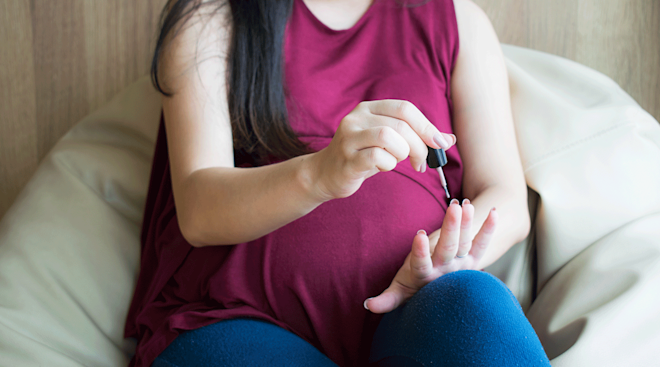Can You Get Botox While Pregnant?
Last year, nearly 9 million people got Botox or similar wrinkle-reducing injections. The latest trend: Something called “baby” Botox—lighter doses for a more natural look. But what happens when these Botox fans start planning for actual babies? More and more people are asking: Can you get Botox while pregnant? Here, experts weigh in on the safety of “baby” Botox and regular Botox while pregnant—and offer some effective alternatives too.
Though Botox comes from the same toxin that causes botulism, don’t worry—this FDA-approved treatment won’t make you sick. Instead, Botox is a highly purified, modified protein that your healthcare provider carefully injects into specific muscles to limit their movement. (The effects usually last three to four months.) When used cosmetically, Botox can temporarily reduce the appearance of frown lines (aka: the “11 lines” between your eyebrows), crow’s feet around the outer corners of your eyes, horizontal forehead lines that appear when you raise your eyebrows and vertical neck lines.
Medically, Botox injections can be used to treat or prevent several conditions, according to Cleveland Clinic, including:
- Chronic migraines
- Overactive bladder
- Excessive sweating (hyperhidrosis)
- Lazy or crossed eyes (strabismus)
- Excessive tearing (epiphora)
- Twitching eyelid (blepharospasm)
- Facial spasms (hemifacial spasm)
- Neck spasms / head tilt (cervical dystonia or spasmodic torticollis)
Is baby Botox different from regular Botox?
“There’s no real definition of ‘baby’ Botox or micro Botox. It’s simply a lower dose than traditional, therapeutic Botox,” explains Chris G. Adigun, MD, a board certified dermatologist in Chapel Hill, North Carolina. For example, while a regular Botox injection averages between 40 and 70 units, a “baby” Botox session can be half that, clocking anywhere from 20 to 40 units per treatment session. The smaller Botox dose yields more subtle results, making it a popular choice among younger Botox users.
Here’s the short answer: While, in theory, you probably could, most doctors say you shouldn’t use Botox during pregnancy—at least not for cosmetic reasons.
Neither the American Academy of Dermatology (AAD) nor the American College of Obstetricians and Gynecologists (ACOG) has official guidelines on the use of Botox during pregnancy. But most dermatologists recommend against trying Botox in pregnancy. We know the risk is very small, but there’s enough controlled human studies to prove the use of Botox in pregnancy is definitively safe.
Current research reveals that Botox doesn’t appear to get into the bloodstream, so it’s not expected to increase the chance for birth defects, notes Tony Scialli, MD, director of the Reproductive Toxicology Center, a nonprofit which maintains Reprotox, an online database on the effects of medications and chemicals on pregnancy, reproduction and lactation. “If a woman uses Botox in pregnancy and has a baby with a problem, they may feel guilty… but there’s no evidence that Botox causes birth defects.” A 2023 retrospective analysis supports this, finding no increased birth defect rates in babies born to Botox users.
That said, cosmetic Botox can wait. Bottom line: Because there’s no clinical benefit of cosmetic Botox to the mother—meaning it’s not for their health—we aren’t willing to take that risk, says Adigun.
Is Botox safe during pregnancy for medical purposes?
While research on medical Botox during pregnancy remains limited, available studies do show some promise. A 2020 report of 45 people who got Botox for migraines during pregnancy found all babies were born healthy and at normal birth weights. And that aforementioned 2023 study showing normal birth defect rates? Those folks got Botox for migraines during pregnancy too.
Still, most doctors prefer to play it safe. For example, if you have hyperhidrosis—which is excessive sweating—doctors won’t choose something with a neurotoxin to treat it if you’re pregnant,” says Adigun. There are alternatives, like a prescription-strength aluminum chloride antiperspirant.
Of course, there are exceptions. The American Academy of Ophthalmology notes that while Botox isn’t generally recommended during pregnancy, it might make sense for certain medical conditions. In fact, 71% of surveyed headache experts would consider resuming Botox during pregnancy if their patients are experiencing severe headaches while expecting. (A 2021 Frontiers in Pain Research editorial even suggested that Botox for migraines during pregnancy might be safer than alternative treatments.) As Adigun explains, “there are times when physicians will use medications in pregnancy that aren’t [definitively] proven to be safe [for the baby], but the decision to do so means the benefit outweighs the risk.”
Is getting Botox while breastfeeding okay? Studies on Botox and breastfeeding haven’t been done. However, since Botox injections are not thought to get into the bloodstream, it’s unlikely to enter breast milk, says Scialli. Because of that, many doctors are more relaxed about Botox during breastfeeding than during pregnancy—but that’s far from a universal stance. Some will never give Botox to a breastfeeding parent, and others have no problem doing it.
“Our feelings about doing Botox during breastfeeding is completely different” says Adigun, who lets patients choose to get Botox while nursing. However, she does make sure they understand that there are no formal recommendations, including whether one should pump and dump, Adigun adds.
Here’s the hard truth: Nothing matches Botox’s wrinkle-smoothing power. And unfortunately, wrinkle-helping retinoids (like retinol and tretinoin) are definitely off the table during pregnancy due to potential birth defects. Salicylic acid, chemical peels, hydrocodone, and laser treatments that require a numbing agent are no-nos, too, adds Adigun.
But, don’t worry, there are plenty of alternatives to Botox during pregnancy to keep your skin glowing, including:
- Azelaic acid
- Bakuchiol
- Benzoyl peroxide
- Glycolic acid
- Hyaluronic acid
- Intense Pulsed Light Therapy (IPL)
- Topical vitamin C
Good news! You can most likely get Botox whenever you’re ready after giving birth. “I’ve had a patient stop in for Botox treatment on her way home from hospital!” Adigun says. Just remember that not all doctors will treat breastfeeding parents, so check with your provider first.
Frequently Asked Questions
When to stop Botox before pregnancy?
“Botox doesn’t appear to get into the bloodstream, which means it's not expected to affect your ability to get pregnant,” says Scialli. But if you accidentally got Botox before finding out you’re pregnant, don’t panic! “The likelihood of the botulism toxin entering the bloodstream in any appreciable amount to cause danger to baby is exceedingly low,” says Adigun. Still, it’s best to wait until after your baby is born to resume Botox treatments.
What are the risks of getting Botox while pregnant?
“Doctors advise against Botox during pregnancy due to the absence of controlled human studies,” says Scialli. While there’s no clear evidence of harm, there’s also a lack of sufficient research to confirm its safety during pregnancy. Scialli notes that Botox doesn’t appear to enter the bloodstream, making it unlikely to increase risks of miscarriage or birth defects.
Does Botox cross the placenta?
Since Botox typically stays within the area of the body where it’s been injected and doesn’t circulate through the system or bloodstream in significant quantities, it’s unlikely to cross the placenta, according to Scialli. But without complete research, many doctors prefer to play it safe during pregnancy and breastfeeding.
Ready for the (temporarily wrinkled) bottom line: Despite science suggesting Botox might be safer than we thought, doctors still vote for a pregnant pause on cosmetic treatments. For medical users, you’ll want to chat with your healthcare team. And for everyone else, think of this as your face’s own mini maternity leave. Before you know it, you’ll be back in the derm’s chair, baby photos in hand—and frown lines forgotten!
Please note: The Bump and the materials and information it contains are not intended to, and do not constitute, medical or other health advice or diagnosis and should not be used as such. You should always consult with a qualified physician or health professional about your specific circumstances.
Plus, more from The Bump:
Chris G. Adigun, MD, is a board certified dermatologist in Chapel Hill, North Carolina. She earned her medical degree from the University of North Carolina School of Medicine.
Tony Scialli, MD, serves as director of the Reproductive Toxicology Center, a nonprofit which maintains Reprotox, an online database on the effects of medications and chemicals on pregnancy, reproduction and lactation. He previously worked as an ob-gyn in Washington, D.C., and earned his medical degree from Albany Medical College in New York.
Statistia, Most performed nonsurgical cosmetic procedures worldwide in 2023, September 2024
Highlights for Prescribing Information
Cleveland Clinic, Botulinum Toxin Injections((https://my.clevelandclinic.org/health/treatments/8312-botulinum-toxin-injections), April 2022
Facial Aesthetics, What Is Baby Botox?
Neurology, Pregnancy Outcomes in Patients Exposed to OnabotulinumtoxinA Treatment , July 2023
The Journal of Headache and Pain, OnabotulinumtoxinA for chronic migraine during pregnancy: a real world experience on 45 patients, 2020
Neurology, The Use of OnabotulinumtoxinA for the Treatment of Chronic Migraine During Pregnancy: An American Headache Society Survey Study (P7-12.003), April 2024
Frontiers in Pain Research, Safety of OnabotulinumtoxinA in the management of chronic migraine in pregnancy, August 2022
Official Publication of the College of Family Physicians of Canada, Safety of skin care products during pregnancy, June 2011
Learn how we ensure the accuracy of our content through our editorial and medical review process.
Navigate forward to interact with the calendar and select a date. Press the question mark key to get the keyboard shortcuts for changing dates.
































